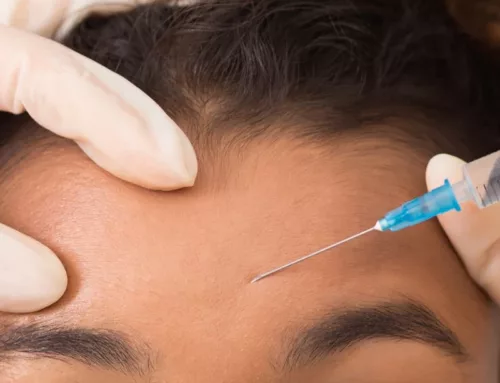Foods to Avoid for Healthy Skin
We’ve all encountered sayings that claim how different foods can influence our skin. For example, maybe you’ve heard that chocolate gives you acne or that dairy can provoke common skin problems. When it comes to food and the skin, we know one thing to be sure – the nutrition we provide our bodies through food significantly impacts our skin health.
So what foods should we avoid or limit to promote healthy, glowing skin?
On The Skin Report podcast, Dr. Simran Sethi, an Internal Medicine doctor and the Founder and Medical Director of RenewMD medical spas, shares information on why certain foods can cause breakouts and premature skin aging. Through science-backed knowledge of nutrition and skin health, she shares how listeners can stay mindful about their dietary intake to keep their skin looking clear, youthful, and vibrant!
Food and Acne
Amongst all of the popular beliefs about diets and breakouts, which foods actually cause a notable difference in our acne production? Let’s look at the three most popular foods and fats associated with acne: dairy, chocolate, and fatty acids.
Dairy
Recent research has shown that dairy consumption has been proven to directly increase acne production in teenagers and young adults. The International Journal of Dermatology published a recent review of acne and nutritional studies to conclude what factors worsen and improve acne.
se studies show that dairy increases levels of androgens which will promote sebum production. Sebum is the natural oil that our skin produces. While it serves the vital purpose of keeping our skin moisturized, too much sebum can cause clogged pores and acne. This is more common in teenagers or those with oily skin.
Therefore, substituting dairy with plant-based options or reducing your dairy intake may be helpful to avoid acne breakouts.
Chocolate
Chocolate is another food that has been blamed for acne throughout the years. As it turns out, the rumors about chocolate’s effect on acne do hold some truth.
Consuming chocolate in excess quantities has been shown to increase acne breakouts. In particular, chocolate containing more sugar will more likely promote acne production, though no conclusive studies specify the difference for dark vs. milk chocolate.
To avoid acne breakouts, consider limiting your chocolate consumption and sticking to chocolate with lower sugar content when you do treat yourself.
Fatty Foods
So what about oils, fats, and greasy foods? Well, fatty foods containing omega-6 fatty acids can impact acne production.
Omega-6 fatty acids are often consumed through vegetable oils and are different from omega-3 fatty acids, which can be found in nuts, seeds, and fatty fish like salmon. So rather than eliminating omega-6 fatty acids from our diet, we can balance our intake of fats by consuming more anti-inflammatory omega-3 fatty acid-rich foods.
Maintaining a diet with less consumption of vegetable oils, in general, will reduce acne production.
Diets and Skin Aging
Now that you know more about how foods affect the skin, we can discuss how nutrition can cause our skin to age prematurely. In particular, sugar and salt can impact our skin’s appearance, resilience, and health.
Sugar
Sugar is a carbohydrate that, when consumed in excess, can bind to our skin proteins. Unfortunately, this can inhibit collagen and elastin, which give skin strength and elasticity. Collagen and elastin fibers help our bodies create skin that is more resistant to wrinkles and damage. When sugar molecules bind to collagen and elastin, this can lead to weaker skin that is more prone to wrinkles.
When sugar molecules attach to skin proteins, they’re considered Advanced Glycation End Products or AGEs. Unfortunately, developing AGEs is irreversible, so reducing sugar intake is important to reducing the damaging effects of sugar consumption on our skin.
To avoid AGEs, try to be mindful of how sugar can appear in our diets. Foods like sugary “juices,” cocktails, smoothies, wellness drinks, and even gummy vitamins may seem like healthy choices. However, they are often overly processed and contain high sugar levels.
Salt
Salt can also impact the look and feel of our skin, as consuming salt in excess can cause our body’s water balance to shift. This, in turn, can result in our cells releasing more water to balance the salt in the bloodstream, making the skin appear dehydrated and dull.
How Nutrition Impacts the Skin
The food we consume can impact our acne production and skin aging. However, remember that everybody is different, and some people may react differently to foods and ingredients than others.
Additionally, just because a food can cause acne or skin aging when consumed in excess, this doesn’t mean you need to eliminate it from your diet altogether. Rather than enforce rigid restrictions on your diet, being mindful of your nutrition. How you balance your food intake will help you achieve healthy skin while still enjoying the foods you love!
If you want to learn more about foods to limit for your skin’s health and the scientific reasons why foods harm your skin, tune into season 1, episode 27 of The Skin Report podcast.







